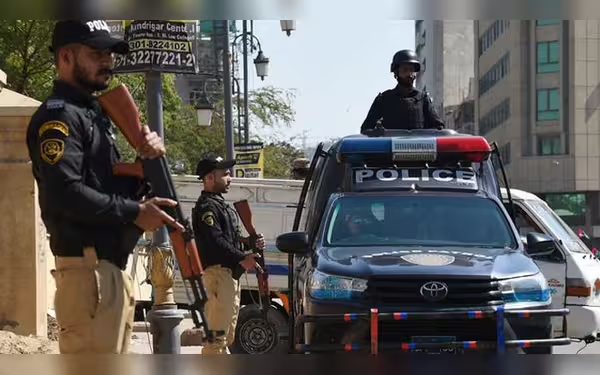Saturday, November 16, 2024 05:27 PM
Karachi Administration Bans Protests for Five Days
- Public gatherings banned in Karachi for five days.
- Section 144 invoked due to security concerns.
- Similar restrictions imposed in Punjab's five districts.
 Image Credits: thenews.com.pk
Image Credits: thenews.com.pkKarachi administration imposes a five-day ban on public gatherings under Section 144 due to security concerns, reflecting ongoing tensions.
KARACHI: In a significant move aimed at maintaining public order, the Karachi administration has imposed a ban on all forms of public gatherings, including protests, sit-ins, and rallies, for a duration of five days. This decision comes under the authority of Section 144, which is often invoked in situations where there are concerns about security and public safety. The administration's action reflects a growing apprehension regarding potential unrest in the city, which has seen its fair share of protests in recent months.
Section 144 is a legal provision that allows authorities to prohibit gatherings in specific areas to prevent disturbances. The Karachi administration's decision is not an isolated case; the Punjab government has also taken similar measures, imposing restrictions on public gatherings in five districts for three days, citing security issues as the primary reason.
The imposition of these restrictions raises important questions about the balance between maintaining public order and allowing citizens their right to assemble and express their views. While the government argues that such measures are necessary to prevent chaos and ensure safety, critics often point out that these bans can infringe on democratic rights. It is essential for authorities to communicate clearly with the public about the reasons behind such decisions to foster understanding and cooperation.
As citizens of Karachi and other affected areas navigate these restrictions, it is crucial to remember that the right to protest is a fundamental aspect of democracy. However, it is equally important to ensure that such expressions do not lead to violence or public disorder. The challenge lies in finding a middle ground where citizens can voice their concerns while maintaining peace and security.
The recent bans on public gatherings in Karachi and Punjab highlight the ongoing tension between security measures and civil liberties. As the situation evolves, it is vital for both the government and the public to engage in constructive dialogue. Understanding the reasons behind these restrictions can help foster a more peaceful environment, where citizens feel safe to express their opinions without fear of violence or repression.













